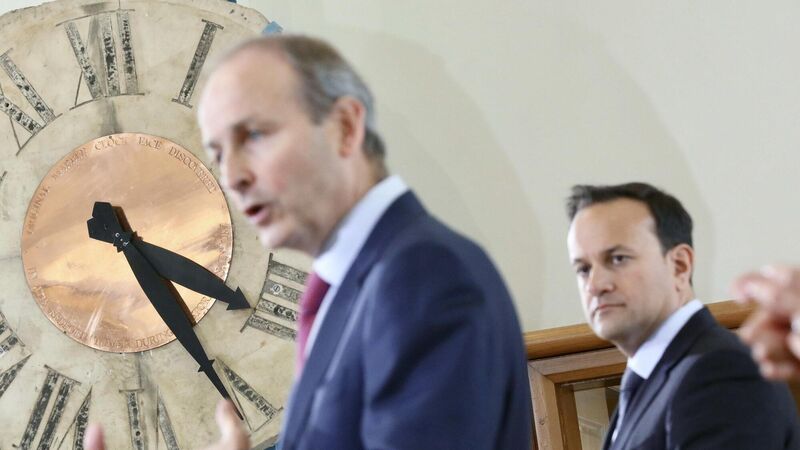Daniel McConnell: Government on a rocky road looks to turn the corner

This Government’s start has been rocky, to say the very least.
In its 26 days in existence, we have seen an original Cabinet line-up engulfed in controversy, a ministerial resignation, delays to the easing of Covid restrictions, and now inner coalition tensions over the ‘green list’ of safe countries for travel.
All of these individual scandals and foul-ups has allowed the Opposition to pile in and present an image of a Government in chaos.
Some of the criticism is fair and warranted. Some of it is opportunistic and over the top.
Former Tánaiste Simon Coveney had little choice but to acknowledge on RTÉ Radio on Wednesday morning that it has been a “difficult start” to the life of this historic tripartite coalition.
Notwithstanding those initial teething problems and tensions, the publication of the July stimulus plan, of up to €7bn, represents the Government’s best opportunity to wipe the slate clean and start again.
Designed to respond to the challenges posed by the coronavirus pandemic, the scale and ambition of the plan is the third phase of the State’s response to the “severe recession” we find ourselves in as a result.
In keeping with the fine tradition of recent budgets, much of the plan has made its way into newspaper pages here and elsewhere.
One of the major elements of the plan will be the tax rebate to consumers who spend money in hotels and other tourist locations, which the Irish Examiner reported upon last Saturday.
As we are revealing this morning, this rebate is to be in place until 2022 — a clear sign that the tourism sector faces a very difficult time next year, as well as being decimated this year.
The reasoning for only introducing it from September is because hotels are already full in August, and any tax break would only benefit the establishment owners.
It seems the public will be able to use an app on their phones to scan their receipts and apply to Revenue for the rebate.
We also know that the two major measures introduced by the last Government at the start of the crisis — namely the pandemic unemployment payment (PUP) and the temporary wage subsidy — will be extended until next April, while being phased down.
These are significant and very costly extensions to the payments which have offset the harshest realities of the crash for thousands of businesses and hundreds of thousands of workers.
There will also be a huge emphasis on retraining people, with 35,000 apprenticeships included in the plan, as well as an enhancement of the so-called Restart grant which had been capped at €10,000.
But whatever about the substance of the plan, it is also a very important political milestone for the coalition.
For the likes of Michael McGrath and Paschal Donohoe, Simon Coveney and Dara Calleary, it is a chance to demonstrate as the “serious heads” in Cabinet that the two old enemies can actually work together.
For the Greens, they need to demonstrate that their fingerprints on the plan also, with Eamon Ryan and Catherine Martin likely to feature heavily, given the portfolios they hold.
The plan presents this shaky coalition a chance to lay the ghosts of the past four weeks to bed and demonstrate the capacity needed to run the country.
Let's see if they pass their first real test — or will their bad luck continue?






